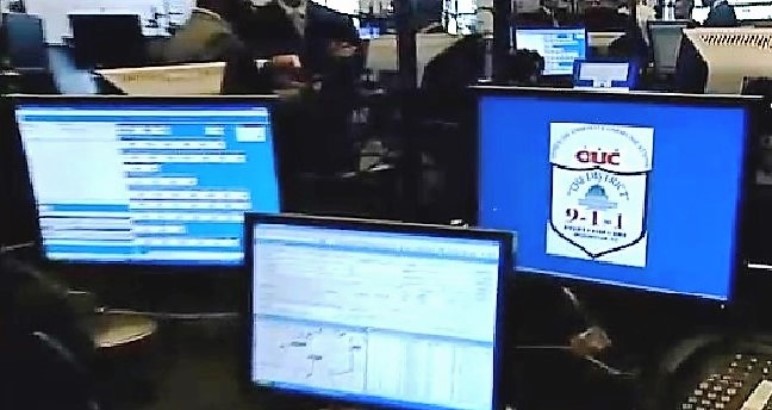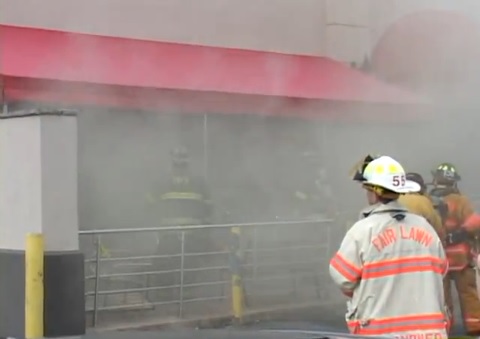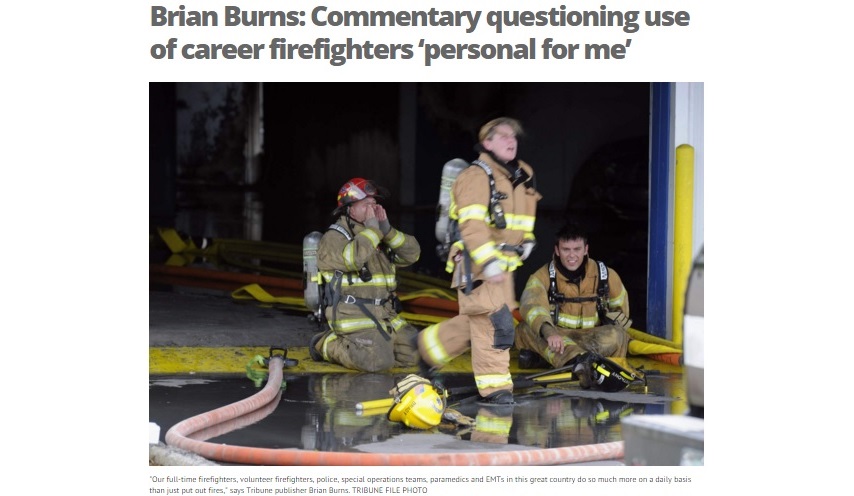DC 911 takes 7-minutes & much confusion to send help to firefighters at a gas leak
Once again DC 911 shows it can't handle its basic mission

Looking for a quality used fire truck? Selling one? Visit our sponsor Command Fire Apparatus
There’s more proof this (Wednesday) afternoon the 911 center in the Nation’s Capital is incapable of performing its core mission of sending the right help to the right location in a timely manner. In today’s incident, DC Fire & EMS Department Engine 1 attempted to get two additional engine companies and a battalion chief to assist with a natural gas leak. Amid much confusion at the Office of Unified Communications (OUC or 911 center), it took dispatchers approximately seven minutes to alert the additional companies.
The radio traffic (see timeline below) shows, once again, OUC can’t promptly send help and that many of the people who work there don’t understand the basics of fire department operations. There’s great frustration in the voice of the officer on Engine 1 as he attempts–multiple times over many minutes–to explain what he needs to handle the emergency. This is similar to what happened after a man fell off the platform and onto the tracks at the Waterfront Metro Station on October 14. In that incident it took an officer of an engine company on an unrelated call to intervene and explain to OUC’s dispatcher the proper assignment that should be dispatched.
None of this is new. For years we’ve been sharing the confusion and delay that’s SOP at OUC. This is the fourth delayed dispatch we’ve confirmed since an August incident when a young boy and a man died in a house fire. In that case it took four-minutes to dispatch the call that came in by radio from a police officer on the scene.
Remember, these are just the delayed dispatches we know about. I contend this is happening every hour of every day. That’s because OUC has never come close to meeting National Fire Protection Standards of 60 seconds for processing priority calls. How many people, whose calls for help by phone to 911 we don’t hear, are suffering and dying because OUC can’t do its job?
It may help you understand how common delays and confusion are at OUC to know how I found out about today’s incident. I had the scanner on and heard Engine 1 request the additional engines and battalion chief. I figured this would be an opportunity to hear for myself how long it took to process a call. It’s just a random call I happened to hear and it took seven-minutes and lots of bumbling by OUC to dispatch the additional apparatus. It’s a shame I can’t get the local news media or politicians to see that a dysfunctional 911 center is a danger to all who live in, work in and visit Washington, DC. It’s also a clear danger to the firefighters and police officers who must call OUC to get help at an emergency they’re trying to bring under control.
Here’s the radio traffic from OpenMHz from today’s incident:
2:39 p.m. Engine 1 and Truck 2 are dispatched to a natural gas leak at New Hampshire Avenue and M Street, NW. That location is about a block-and-a-half from their quarters.
2:49 p.m. This audio file from OpenMhz is incomplete, but this is the radio transmission that caught my attention. What you are missing from the middle of the conversation is Engine 1 asking for an additional two engines and chief to fill out the local alarm assignment and establishing New Hampshire Avenue Command.
2:52 p.m. Now, three-minutes after requesting help, Engine 1/New Hampshire Avenue Command attempts to find out what tac channel has been assigned (none) and explains again the apparatus needed to fill out the local alarm assignment.
2:53 p.m. Four-minutes after requesting help–which still hasn’t been dispatched–OUC wants to know if the gas leak is inside a building or outside. After saying “it’s outside”, the officer from Engine 1 says quite tersely, “Fill the local. Give me the tac channel.”
2:54 p.m. OUC finally assigns a tac channel, but there has still been no dispatch of the additional apparatus requested five-minutes earlier.
2:56 p.m. After seven-minutes of delay and confusion, OUC finally dispatches the two additional engines and battalion chief to fill out the local alarm.
On a local radio show Friday, Mayor Muriel Bowser issued a vote of confidence in OUC director Karima Holmes. Holmes was recently appointed by the Trump administration to the board of FirstNet. Mayor Bowser has never publicly admitted any problems with OUC and acts like there’s no problem with DC 911. When pushed by reporter Paul Wagner on October 11 (video below) to respond to the delays during an October 7 Metro collision and the deadly fire in August, Bowser said, “I don’t have that detail and I will respond at another time.”
It’s now 16-days later and Bowser still hasn’t responded. If she still hasn’t been provided the details, maybe someone needs to be fired. Mayor Bowser, it’s long past time to acknowledge the crisis at OUC and fix DC 911.





